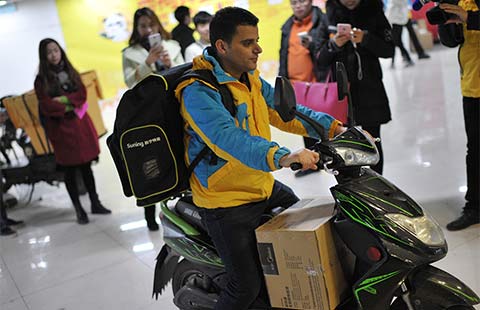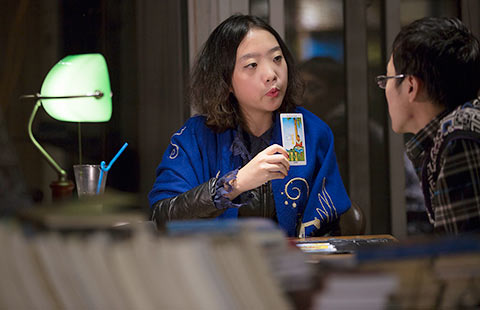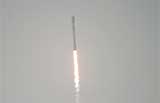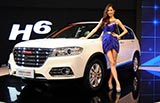Homemade aircraft debuts at aviation expo
(Xinhua) Updated: 2016-02-02 17:02ZHENGZHOU - A light aircraft made by a Chinese flight enthusiast made its debut at China's first private aircraft exhibition in the southern city of Shenzhen this week.
The 113-kg aircraft, which features the national flag on its tail, stunned visitors at the first China (Shenzhen) International Private Aviation Expo, which ended Tuesday.
Qin Guolian, the man who made the aircraft, said he was over the moon that his "bird with golden wings" was displayed alongside 23 other private aircraft, most of which were imported.
"I received a lot of praise from my fellow aircraft enthusiasts," said Qin, 41, who works for a power supply company in Henan Province, central China.
To get his creation to the event, Qin had to disassemble the American spruce body into several parts and load them on to trucks.
The red, blue and white aircraft, modeled on the American kit aircraft Team Mini-Max, is 7.8 meters long, 5.5 meters wide and 2.3 meters high. It had a successful test flight at a local airport in December, and achieved a top speed of 80-km/hour and an altitude of more than 600 meters.
Qin, a high-school graduate, added a number of improvements to the kit craft.
"I made a push-to-start system, improved the tricycle landing gear and installed anti-collision lights on the wings," said Qin.
Qin has big dreams for the plane.
"My aircraft can be used to inspect electricity wires, a dangerous and arduous task for my colleagues," said Qin.
According to the civil aviation authority, super-light aircraft, which weigh less than 116 kg, run within 100 km per hour and carry only one person, do not need an airworthiness certificate.
However, government permission is needed to fly at low altitudes -- a complicated, lengthy process.
Qin called for the authorities to simplify procedures and allow more enthusiasts like him to experience the joy of flight.
Being a pilot has long been Qin's dream.
In 2013, when he had amassed enough savings and knowledge he began to prepare to make the aircraft. The build began in March 2015 after he had traveled across the country for a year consulting experts and buying components.
The aircraft cost him more than 200,000 yuan ($30,534). Most of the instruments were bought online. The most expensive component was the Rotax engine, which had to be imported from Austria and cost him 87,000 yuan.
One of the biggest headaches Qin experienced was that most of the instructions were in English. Internet translation tools and his 15-year-old son were very helpful, he said.
- Experts: Chinese economy on right track
- Stocks rebound on back of more liquidity injection by PBOC
- Bidding farewell to traditional IT resources in education
- Luxury auto market feels the sting of China's slowdown
- New head committed to Infiniti roadmap
- Backed by Tencent, startup puts prominent names behind wheel
- Alternative yardsticks show upbeat signs in Chinese market
- Xiaomi denies authorizing US handset sales
















